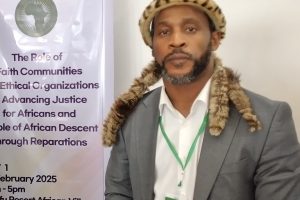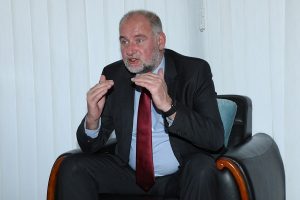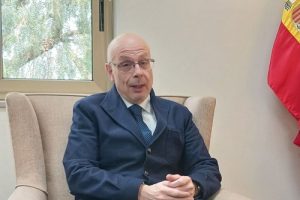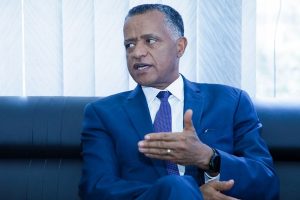
The beginning of Korea-Africa relations dates back to the period of the Korean War in the 1950s. During the war, African countries extended a helping hand to Korea. Ethiopia deployed its Royal Guards, South Africa dispatched air force squadrons, Liberia and Egypt offered logistical support, and young Moroccan soldiers fought for Korea as part of a French unit.
This bond facilitated Korea’s diplomatic ties with six African nations – Cote d’Ivoire, Niger, Benin, Chad, Cameroon, and the Republic of the Congo – along with the independence of African countries in the 1960s.
In the 1980s, Korea’s relations with Africa were highlighted by the hosting of the 1988 Seoul Olympics. This led to increased cultural and political exchanges between Korea and Africa, resulting in expanded engagement with African countries and enhanced cooperation levels.
With the end of the Cold War in the 1990s, Korea significantly strengthened its diplomatic engagement in Africa. Key milestones included Korea’s admission to the United Nations and the establishment of the Korea International Cooperation Agency (KOICA) in 1991.
The early 2000s saw a growth of solidarity and cohesion efforts across Africa, culminating in the launch of the African Union (AU) in 2002. Korea attained AU observer status in 2005, leading to substantial collaboration with the AU.
In 2006, Korea announced the “Korea’s Initiative for Africa’s Development,” committing to share its developmental experiences with Africa. The Korea-Africa Economic Cooperation (KOAFEC) Ministerial Conference and the Korea-Africa Forum (KOAF) were launched in April and November of the same year, serving as key platforms for cooperation.
Today’s guest, Kang Jung, is the Ambassador of the Republic of Korea to Ethiopia, Djibouti, Seychelles, and the permanent representative to the African Union. In an interview with the Ethiopian Herald, Ambassador Jung discussed various issues, focusing on the upcoming Korea-Africa Summit on June 4 and 5 in Seoul. Have a nice read!
What Makes the Korea-Africa Summit Special?
Having experienced colonization and overcoming the ravages of war, Korea possesses a deep understanding of the challenges and aspirations of African nations more than any other country in the world. It is this shared history that underpins the exceptional partnership between Korea and Africa.
With the support of the international community, Korea overcame these formidable obstacles and achieved remarkable growth within a relatively short period. Committed to reciprocating the support it received, Korea is dedicated to giving back to the international community, including Africa, by sharing its experiences in economic growth and development.
We have three slogans, sometimes referred to as 3S: Solidarity, shared growth, and sustainability. These 3S principles embody the goals of the Korea-Africa summit. We aim to promote shared growth, solidarity with each African countries, and sustainable projects that will endure into the future.
Moreover, the ROK boasts a diverse array of technologies, ranging from traditional industries to cutting-edge innovations. This technological prowess positions Korea to offer tailored solutions to address the varied needs of African countries.
Leveraging Korea’s expertise in education and vocational training, alongside Africa’s abundant youth population, presents a significant opportunity for Africa’s capacity building and skill development initiatives, empowering its youth and driving economic growth. Through the Korea-Africa summit, we are eager to share our unique and unparalleled experience with all African countries, embodying the true value of solidarity.
How many African countries are expected to participate in the Summit?
As of now, over 50 African countries and African-based international organizations are expected to attend. We are anticipating the attendance of representatives from all African countries, with around 30 to 40 Heads of States expected to participate.
Africa and Korea are working together in various areas. What is the Objective of this Korea- Africa Summit?
The Korean government is actively working to catalyze a significant expansion of cooperation with Africa, ensuring that both parties benefit equally from cooperative efforts. Drawing upon the Africa Union’s Agenda 2063 and Korea’s vision of serving as a Global Pivotal State, both sides share important values and aspirations that serve as the cornerstone for enhanced strategic cooperation.
Above all, the ROK stands prepared to actively share its wealth of experience and expertise with African countries and endeavors to become a strategic partner in facilitating Africa’s proactive strides towards a promising future.
In this regard, last year, we pledged to double the Official Development Assistance (ODA) by 2030 and offered a $6 billion financial package. We plan to expand trade and investment in Africa, focusing on seven priority areas of cooperation that the ROK aspires to enhance with African nations.
These include boosting trade and investment, addressing global challenges like food security, global supply chains, climate change, and global events, promoting sustainable energy and infrastructure, developing human resources through education and TVET, advancing science, technology, and digital transformation, fostering mutual understanding and people-to-people exchanges, and achieving peace and security.
Through tailored support mechanisms aligned with the specific needs and conditions of individual nations, Korea aims to accompany African countries to take the lead in charting their own trajectories.
In line with this vision, we have chosen the theme of the summit: “The Future We Make Together: Shared Growth, Sustainability, and Solidarity.” The Korea-Africa summit will serve as an occasion to explore innovative solutions tailored to the needs of both sides and achieve tangible, result-oriented outcomes.
Could you explain the business partnership between Africa and Korea?
Korea-Africa trade volume has now reached 29 billion USD in 2022, up from 1.6 billion USD in 1987.
However, there still exists a great need to further expand the absolute scale of trade and investment. We are striving to center the Korea-Africa summit on economics and business. We have decided to dedicate the entire day of June 5th solely to business interactions. The Korea-Africa Business Summit will bring together government officials and business leaders from both sides to explore various avenues.
Korea-Africa Business Consultations (B2B) will also offer African business leaders and companies the opportunity to connect with relevant Korean counterparts, fostering genuine investment opportunities.
The development partnership between Korea and Ethiopia will also evolve, taking this opportunity. Last September, the Korean government pledged to double its Official Development Assistance (ODA) to Africa by 2030.
In the same month, Korea’s Finance Minister announced a six million US dollar financial package to fund various projects in Africa through the joint declaration during the 7th Korea-Africa Economic Cooperation (KOAFEC) ministerial conference.
Korea is willing not only to increase the quantity but also the quality and efficacy of its assistance to Africa. To this end, it provides tailored support to meet the needs and conditions of each African nation.
Human resource development is one of the areas of partnership between the two States. Would you please add in that?
With a large youth population in African countries, there is significant potential for synergy in human resource development, and Korea’s education system and vocational training expertise can contribute to Africa’s capacity building and skill development initiatives. The Korean government’s projects for human resource development in Africa range from technical and vocational education and training (TVET) to higher education.
South Korea is renowned for its programs, while Ethiopia has room for improvement in this area. We are collaborating to develop TVET training programs and expand vocational training opportunities.
For instance, the KOICA, in collaboration with LG Electronics, established LG-TVET College in Ethiopia. With a well-designed curriculum, the school gives young Ethiopian graduates sufficient skills and capabilities to work and succeed in the digital industry.
The success of projects like the LG KOICA initiative serves as a model for further cooperation in this field, not only within Ethiopia but across the African continent.
Furthermore, Korea is welcoming students from many African countries. The Ministry of Education’s Global Korea Scholarships (GKS) provide the opportunity to study at higher education institutions in Korea, both undergraduate and graduate levels. In 2022, there were 549 African students in Korea, of which 82 were under GKS.
Would you please tell us about Africa–Korea cooperation in ensuring food security?
In terms of ensuring food security, Korea has been supporting Africa in rice development through various initiatives. We provide support through international organizations like the WFP and the Ministry of Agriculture, which supplies rice to Ethiopia annually.
The KOPIA program in Ethiopia and other African countries focus on innovation in agriculture, particularly through the K-Rice Belt Initiative. This initiative aims to enhance rice self-sufficiency in African countries by sharing technology and high-yielding rice variations. The summit will consolidate existing projects and initiatives to support them with political will.
Last April, for instance, Korea provides food aid through the Food Assistance Convention, benefiting African countries like Guinea-Bissau, Madagascar, Mauritania, Mozambique, Sierra Leone, Uganda, Ethiopia, and Kenya. This assistance aims to provide food for approximately 2.6 million people in eleven countries for three months.
Korea is committed to expanding food aid and supporting the K-Rice belt Project, transitioning from a recipient to a donor country.
In general, Korea is dedicated to fostering strong partnerships with African nations, contributing to their development and growth through shared experiences, expertise, and resources. The Korea-Africa Summit serves as a platform to strengthen ties, promote mutual cooperation, and achieve sustainable outcomes for both regions.
What is Korea’s vision for assisting African youths in staying in their countries and engaging in local businesses?
That’s a very good question, but also a very difficult one to answer. Korea aims to support African youth by creating opportunities for them to stay in their countries, engage in business, and contribute to their local economies. Discussions are ongoing with African countries, including Ethiopia, to explore ways to facilitate this goal through programs like the Employment Permit System.
The Employment Permit System, for foreign workers or youths who wish to work in Korea. Various types of works are available there, particularly for manual labor or low-skilled jobs, under this system. We designate countries and the skills we require for this system, but so far, no African countries have been included.
However, we are in discussions with several governments, including Ethiopia, to explore the conditions and circumstances. This process takes time, often many years, but we have initiated discussions with a few African countries, including Ethiopia.
As a historic partner to Korea, Ethiopia is expected to be taking part in the Africa- Korea summit. What would be the cooperation of the two countries after the summit?
Ethiopia is a crucial country in Africa with a special relationship with Korea, dating back to the Korean War. Over the past 30 years, the economic relation between Ethiopia and Korea has expanded significantly. Followed by strong bilateral relations, the trade volume between Korea and Ethiopia has grown significantly over the years.
Ethiopia is the largest recipient of Korean Official Development Assistance (ODA). However, there does still existing great need to further expand the absolute scale of trade and investment. Together, we are building future economic cooperation.
As I explained earlier, the upcoming business summit will provide an opportunity for business-to-business interactions, with the participation of Heads of State. Ethiopia High level Officials are expected to attend the business summit and engage in business consultations with Korean companies.
Ethiopia stands to benefit significantly from the financial package and agreements that will be discussed during the summit. This includes financial arrangements and support for TVET expansion.
Ethiopia has been successful examples of TVET implementation, such as the LG KOICA Hope TVET College. Additionally, the Global Korea Scholarship program will offer further benefits to Ethiopian students.
What are your plans to enhance bilateral relations during your tenure as the new ambassador of Korea?
I have three main objectives. Firstly, I aim to increase investment and trade between our nations, moving beyond development collaboration to foster more economic ties. Secondly, I hope to promote cultural exchanges between Korea and Ethiopia, as there is currently limited interaction in this area. Lastly, I would like to see more academic programs focused on Korean studies, such as language departments, established in Ethiopian universities.
Is there a possibility of increasing ODA for Ethiopia after the Korea-Africa summit?
After the Korea-Africa summit, the fund allocated to Ethiopia will gradually increase, with approximately $100 million in the coming year. This amount includes grants and loans for various projects, and we are closely coordinating with the Ethiopian government to prioritize areas like education, agriculture, infrastructure, and environmental conservation.
What do you think to further strengthen cultural cooperation between Ethiopia and South Korea?
Cultural exchanges are a key focus for enhancing mutual understanding between our nations. While there have been limited cultural initiatives in the past, the availability of direct flights between our countries opens up new opportunities for people-to-people exchanges. Understanding each other’s cultures is essential for strengthening bilateral relations and fostering a deeper connection between our peoples.
Thanks for your willingness.
It is my pleasure.
BY GIRMACHEW GASHAW
THE ETHIOPIAN HERALD SATURDAY 25 MAY 2024





